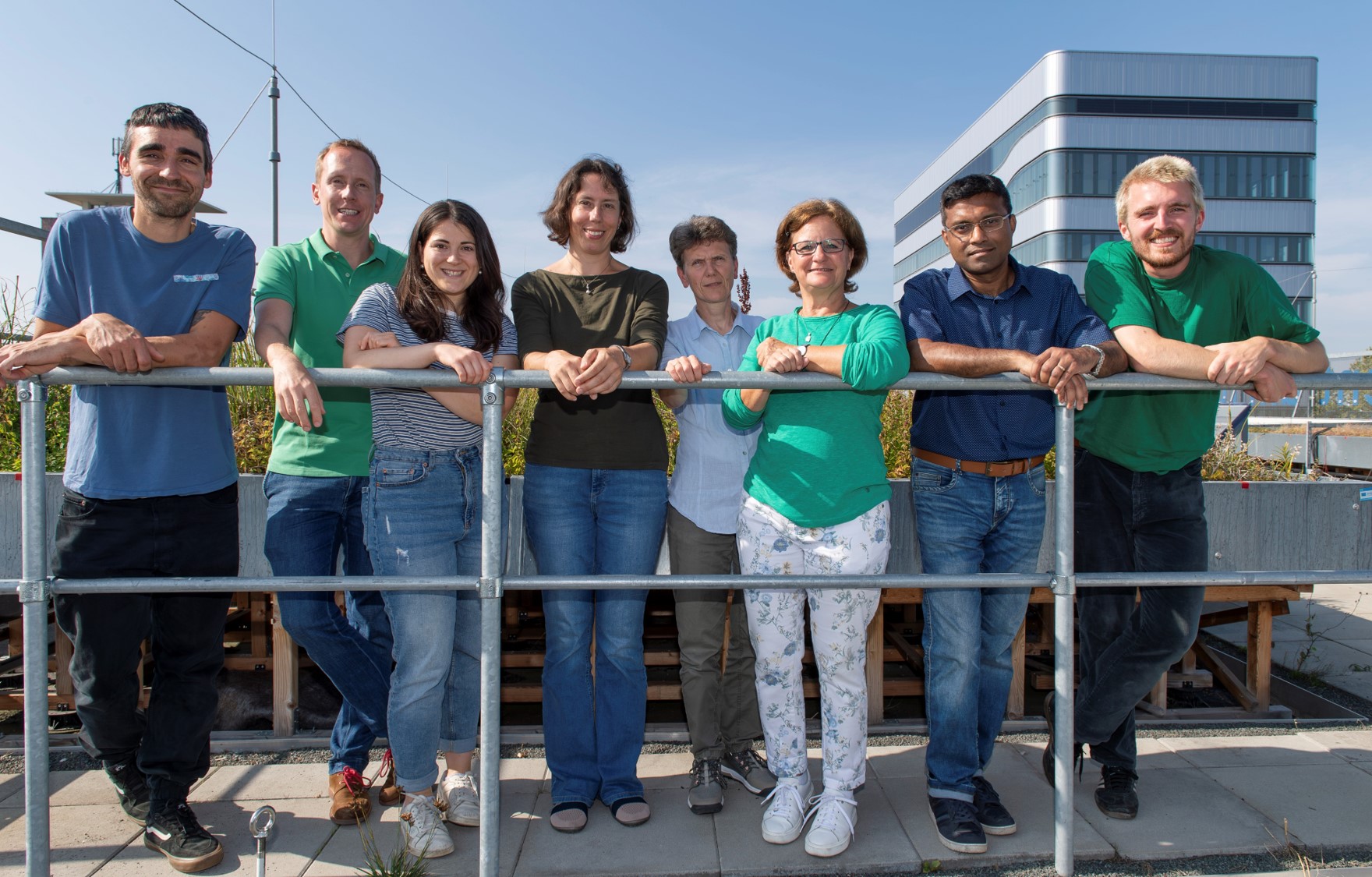
Environmental and Bioprocess Technology
As the "Environmental and Bioprocess Technology" working group (headed by Dr.-Ing. Lucie Moeller), we see our role as contributing to solving the problems of the future: humanity's adaptation to climate change, the development of sustainable wastewater treatment for urban areas and the transformation of the economy towards the bio-economy. With our work, we contribute to the mission of the UFZ's CityTech platform project and build a bridge between the UFZ and forward-looking climate change adaptation initiatives.
A major focus of our work is the development and implementation of decentralised environmental technologies in urban areas. The potential of blue-green infrastructure is urgently needed for the development of climate-resilient cities. The UBZ department is well placed to address these issues, thanks to its network of experts from municipal companies, government agencies and universities, and its dedicated research infrastructure (including the UFZ Research Green Roof). In particular, we are working on the major future challenges of the water-sensitive and resource-efficient city from an engineering perspective. Our role is to slow down local water cycles through blue-green infrastructure and to protect urban districts from heavy rainfall and droughts. These issues are the focus of the following projects:
Blue-Green Urban District Development in Leipzig (Blau-Grüne Quartiersentwicklung in Leipzig) – Leipzig BlauGrün II (worked on by Dr. rer. nat. Marc Breulmann),
-> Management of exceptional precipitation events in urban areas using green roofs (Management außergewöhnlicher Niederschlagsereignisse im urbanen Raum mit Hilfe von Gründächern) - MaNuGrün (DBU-Project, AZ: 37461/01-23).
In addition to the surface water perspective, wastewater separation also plays an important role. Greywater, for example, can serve as an additional water resource in dry periods. We consider individual wastewater streams (currently mainly greywater and faeces) as potential sources of service water and fertilizer, and aim to enable their decentralized use at urban district-level through optimized (pre)treatment. In this context, the following projects are currently underway:
Stabilisation of lactic acid fermentation of faecal substrates (Stabilisierung der Milchsäurefermentation von fäzeshaltigen Substraten) - Faekashi (Dipl.-Ing. Tobias Hübner),
Development and optimization of an innovative roof biofilter (Entwicklung und Optimierung eines innovativen Dachbiofilters) (Dr.-Ing. Khaja Rahman),
Fostering pollutant-sink functions of Blue-Green Infrastructures: towards local urban water cycles in climate-resilient cities (worked on by Dipl.-Ing. Sabine Franke).
All these goals are in line with the goals of the IP TapNature (PP CityTech), and contribute to the achievement of SDGs 6 'Clean water and sanitation' and 11 'Sustainable cities and communities'. Our vision is to implement all ideas on the UFZ campus as part of the CO2-free campus campaign.
An additional topic we are working on is the development of biorefinery concepts. One focus is the stabilization of the biogas process. Our working group has already built-up special expertise in this area, which is receiving great interest in practice. The Biogas Foam Platform provides information on the research work already carried out. Im aktuellen The current project Causes and Counterstrategies for Foam Events in Biogas Plants (Ursachen und Gegenstrategien für Schaumereignisse in Biogasanlagen) - HydroFoam (Dipl.-Ing. Frederik Bade) is investigating the hydrolysis stage in the fermentation of easily degradable substrates, the use of which is of great importance for making biogas plants more flexible.
All projects are actively supported by our technicians Katy Bernhard and Grit Weichert - many thanks for that!
Our international activities focus on sub-Saharan Africa, where we see great potential. The Faekashi project is based on a collaboration with a local partner in Sierra Leone - the NGO Forikolo e.V. Further joint projects are in the pipeline.
In 2022, we will also hold a joint workshop with Martin Luther University Halle-Wittenberg and MUHAS University (Dar-es-Salaam, Tanzania) on "Drug Lifecycle Control in Sub-Saharan Africa: From Production, Quality Control and Logistics to Responsible and Safe Disposal and Elimination in Sewage Treatment Plants" in Arusha, Tanzania. We received financial support from the VW Foundation. The aim of the workshop was to sensitize scientists, practitioners and policy makers from six African countries to the issue of ecological disposal of expired pharmaceuticals in sub-Saharan Africa.
Gerne binden wir interessierte Studierende in die Forschung unserer Projekte ein - sprechen Sie uns an!
